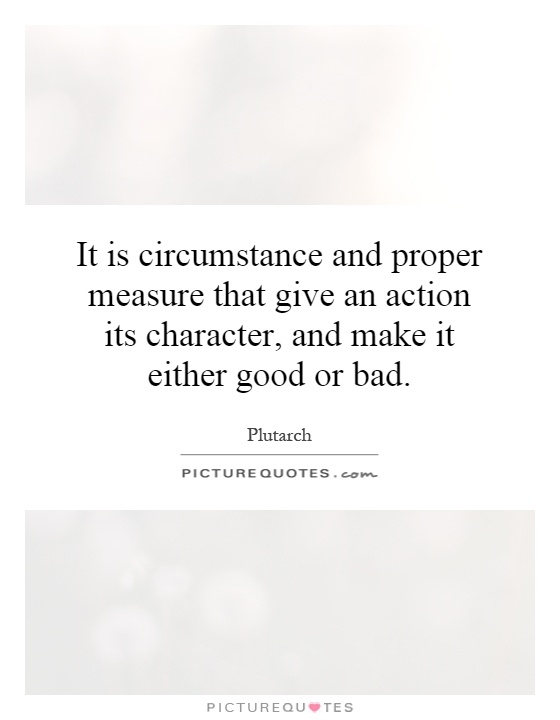It is circumstance and proper measure that give an action its character, and make it either good or bad

It is circumstance and proper measure that give an action its character, and make it either good or bad
Plutarch, the ancient Greek historian and biographer, believed that it is circumstance and proper measure that give an action its character, and make it either good or bad. This idea is central to his philosophy and can be seen throughout his works, particularly in his famous series of biographies known as "Parallel Lives."Plutarch believed that the morality of an action cannot be determined solely by the action itself, but must also take into account the context in which it occurs. He argued that what may be considered a virtuous act in one situation could be seen as immoral in another, depending on the circumstances. For example, killing someone in self-defense may be considered justifiable, while killing someone out of revenge would be seen as wrong.
Plutarch also emphasized the importance of moderation and balance in all things. He believed that it is the proper measure of an action that determines its moral value. For example, courage is a virtue, but recklessness is not. Similarly, generosity is a virtue, but extravagance is not. Plutarch believed that it is important to find the right balance in all things in order to lead a virtuous life.












 Friendship Quotes
Friendship Quotes Love Quotes
Love Quotes Life Quotes
Life Quotes Funny Quotes
Funny Quotes Motivational Quotes
Motivational Quotes Inspirational Quotes
Inspirational Quotes